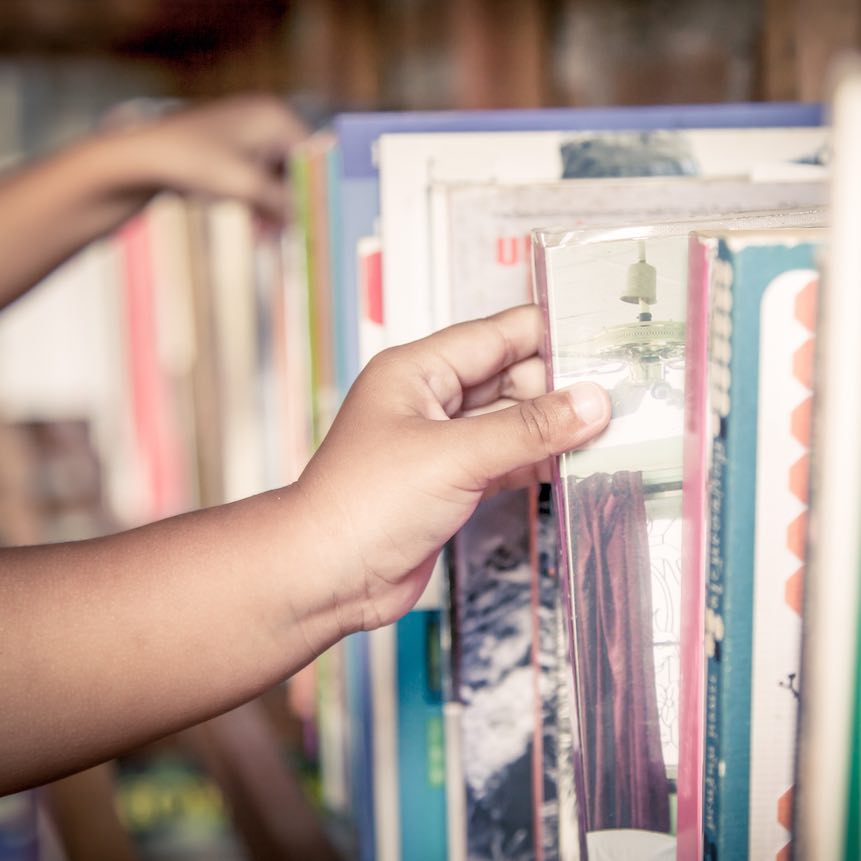 When it comes to children’s books I have hoarding tendencies. But I have recently started to question if we have too many books in our house.
When it comes to children’s books I have hoarding tendencies. But I have recently started to question if we have too many books in our house.
Our kids love to read. I love to read to them.
However I will tell you first hand that too many books turn into clutter. When young children have access to a surplus of books, those books have the tendency to get ripped off shelves, stepped on and overall treated poorly. If we want our children to learn that books are truly the treasures that we know them to be–then we need to start teaching as such. That means we need to cut back on the books.
So if books are strewn about your house and starting to feel like clutter, consider these three reasons to scale back.
Less is More
Although it makes parents a little nuts, kids benefit from reading the same books repeatedly. When you read the same book over and over again you are teaching early literacy skills. On the days that I am home with my kids, we will frequently sit down with a whole stack and read through them all. My husband will come home and ask me what we did during the day. To which I will report, “we read over a dozen books”. That sounds great, right? That’s what ‘good moms’ should be doing. Reading loads of books to their kids.
That’s what I believed too. Until this quote made me second guess myself.
If we understand the value of sharing the same book over and over, then very few are needed. It is beneficial to read only one book at a sitting because each book has its own atmosphere, and mixing them can clutter the child’s experience, especially at bedtime…it will also help to convey the value of individual experience in contrast to always having more of something” -Rahima Dancy
When reading to your children, slow down and focus on really soaking in one book. Get involved in the experience of the book, rather than just reading the words off the page. This will help you to be present and engaged rather than just a book-reading machine. Educators sometimes call this type of interactive reading between an adult and child “dialogic reading.” It sounds fancy, but really it means that you ask questions, make the child a storyteller, and use positive reinforcement. Research shows that kids who are read to like this typically show increases in language development and a greater interest in reading.
The Hidden Value of Borrowing Books
We don’t need to own things to love and enjoy them. This includes books. Books should be borrowed, shared, and enjoyed among friends and communities. This can be done through the local public library, exchanges with friends, and schools. Do you have a Little Free Library in your neighborhood? If not, consider starting one.
The benefits of borrowing books goes beyond the obvious. Of course we save money and avoid extra “stuff” in our homes–those are perks for any family. But the real draw to borrowing books is that it forces us to teach children how to take care of them.
Dear fellow book-hoarders: We keep all these books because they are valuable. They provide our children with a window to the world. Our families truly love these books. But when we have hundreds, it becomes hard to value and appreciate each one individually. Which is why we see books strewn all about the house…being stepped on, torn up, and otherwise damaged.
When we borrow something, we are intentional to respect and care for that item. Teaching children to care for books and other valuable items is an important life skill.
When we have fewer books, those books will be treasured.
The Social Responsibility to Rehome Books
The overflow of children’s books in your home is a #firstworldproblem. Our blessed home would benefit from having fewer books. On the flipside, over 31 million American children grow up in low-income families and may need more books at home. I think that we can help each other.
When you rehome books, you are truly giving a gift to another child. Those treasures sitting on your shelves deserve to be read and appreciated–even if it’s not by your own children.
Get those books into the hands of children who need them.
If you have “old favorites” that your child has outgrown, pass them on so that they can become a “new favorite” for another child. No book can be treasured and enjoyed when it’s packed away in box or stuck in the back of a closet.
So let’s start to borrow rather than buy. Let’s recognize that it’s actually good to read the same few books on repeat. Let’s teach our children to take care and treasure their books. Then let’s encourage our children to let go and give the gift of reading to other families.
*Next week I will be sharing with you our [imperfect] system of organizing and managing children’s books at home*
